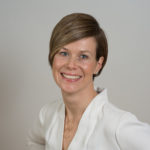Q&A: Quebec's Chief Scientist shares lessons on science advice during a pandemic
Global leaders in science advice and science diplomacy will come together next week in Montreal to discuss how to “Build Back Wiser” after the COVID-19 pandemic. Research Money spoke with Rémi Quirion, Chief Scientist of Quebec, about how the pandemic has shaped science advisory systems globally, and how INGSA2021 could contribute to creating stronger and more dynamic ties between scientists and policymakers.
Other stories mentioning these organizations, people and topics
| Organizations: | |
| People: | |
| Topics: |
Other News
Events For Leaders in
Science, Tech, Innovation, and Policy
Discuss and learn from those in the know at our virtual and in-person events.
See Upcoming Events
You have 0 free articles remaining.
Don't miss out - start your free trial today.
Start your FREE trial Already a member? Log in
By using this website, you agree to our use of cookies. We use cookies to provide you with a great experience and to help our website run effectively in accordance with our Privacy Policy and Terms of Service.





